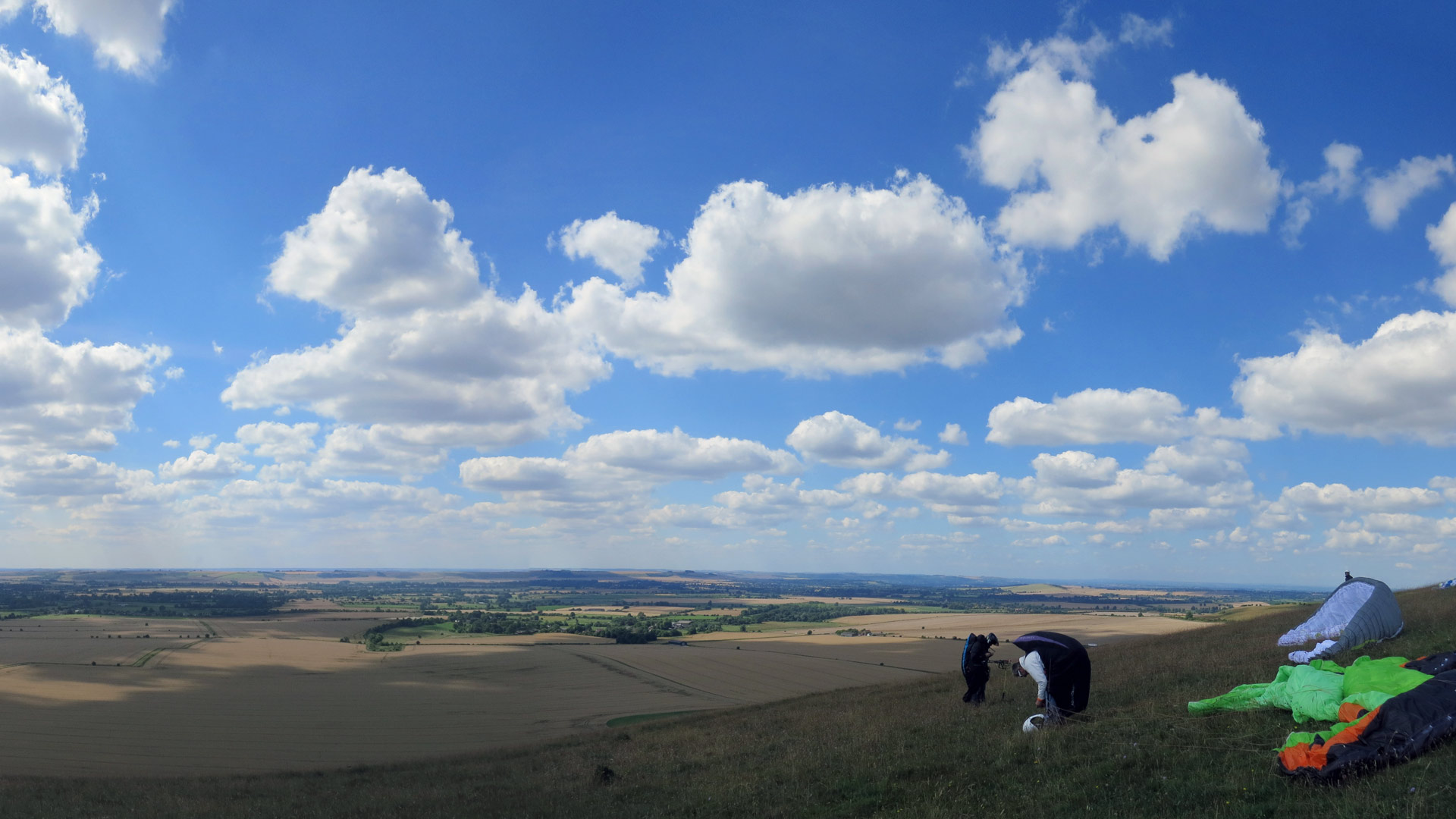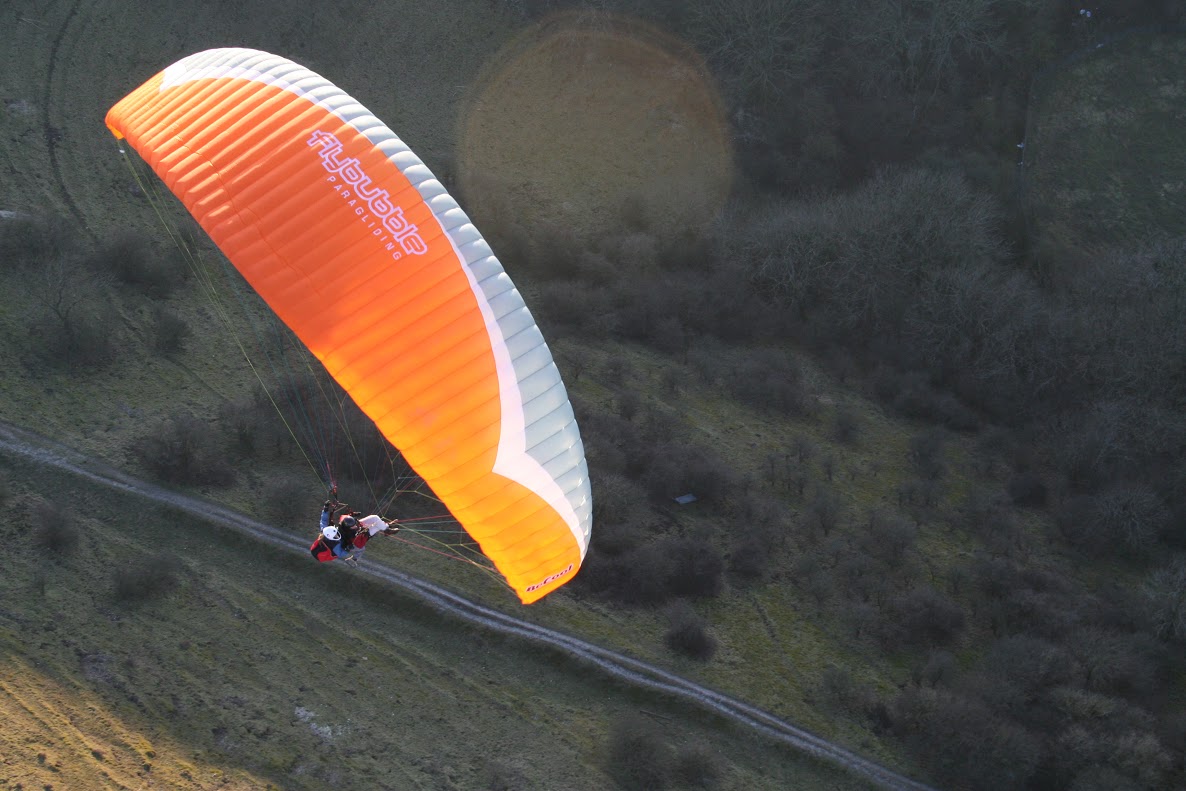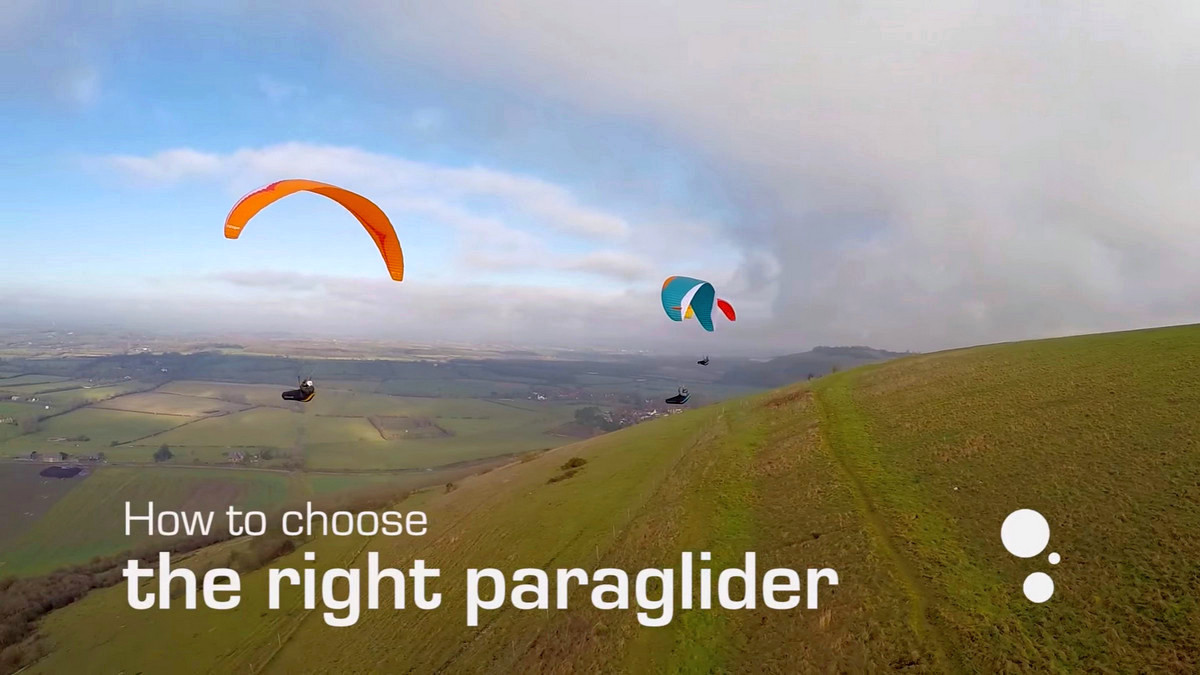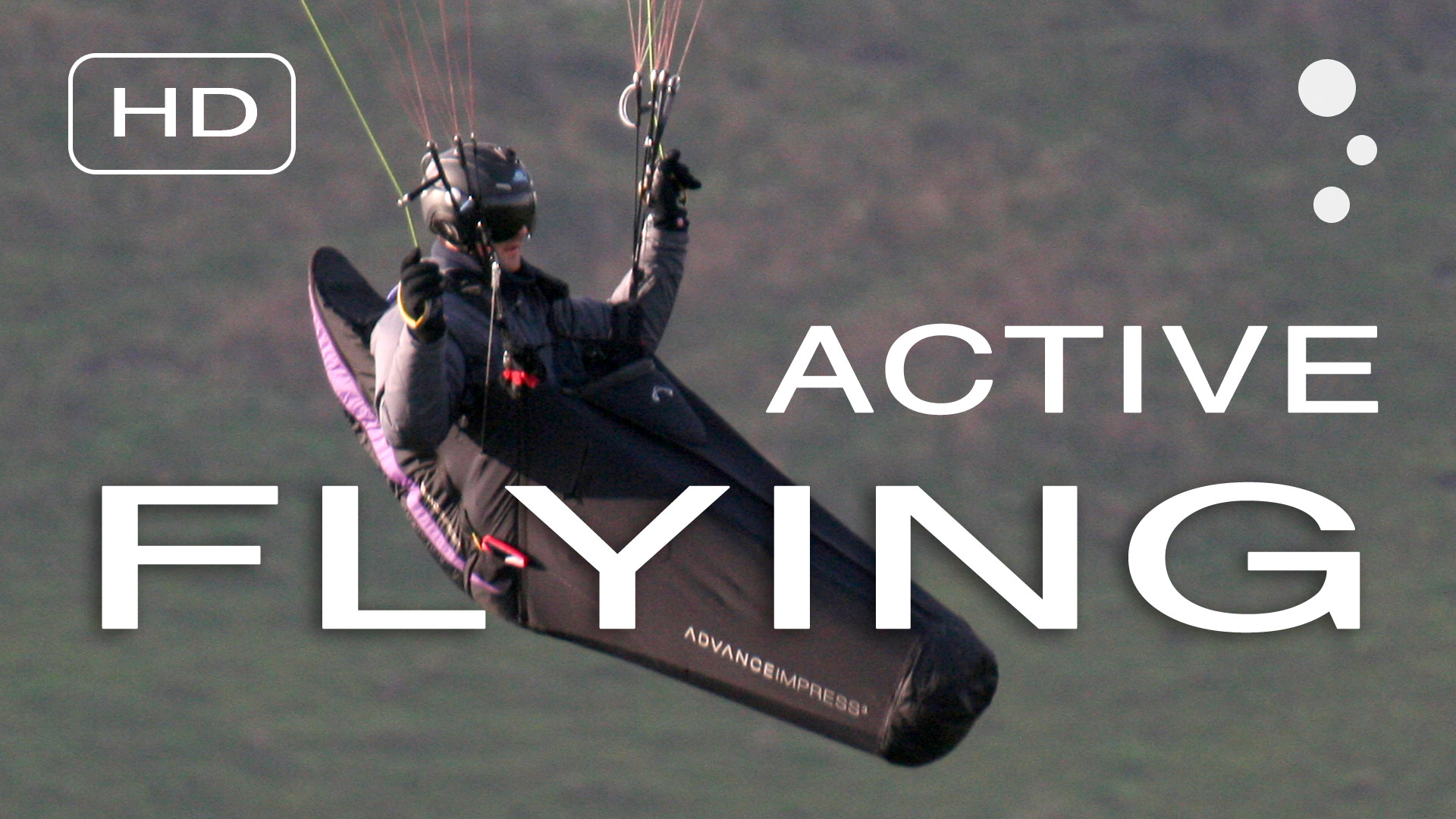Paragliding — Getting Started & More
To help guide you on the right path with your all-important first steps into freeflying, we've provided free general advice on getting started—including tandem flights, taster days, licence courses, FAQ and buying your own equipment, plus a whole lot more—below. On behalf of the whole freeflying community, WELCOME to the wonderful world of freeflight! 😊
NB: We are focused on providing the best service and equipment to our customers so no longer offer training or courses.
Getting started with paragliding
It's simple to fly, but it takes a lifetime to master! You'll need to be fairly fit, adventurous and have free time, but you don't need to be fearless. Caution and careful risk management are traits of good pilots.
Generally the best introduction to flying is a tandem flight (or flights). This could be done before or in conjunction with a taster day or more. Once you're sure free flight is for you, sign up for a full training course.
Tip: Every freeflight school and tandem operation is different. Check them out and ask around before signing up. As with everything in flight, don't base your choice on price. You get what you pay for! Flying is an activity where it's worth spending more for your best experience and safety.
Tandem flights
Tandem paragliding flights are a great way to enjoy the full aerial experience, without having to first learn how to control the paraglider yourself. Your expert tandem pilot will take care of the launch, flight and landing for you!
Taster days
Paragliding schools usually offer a trial session where you can learn to manage the wing on the ground, and get some short low level flights. These are ideal if you think you might take the sport up, as they build a foundation for the next stage.
Full training courses
Expect 10-15 days of training to reach an adequate level for safe solo flying. In the UK this will result in the Club Pilot licence, which is internationally recognised via the FAI¹ CIVL² IPPI Card³ Safe Pro rating system.
My country or abroad?
We think it's best to learn in the environment you'll do most of your flying in, even though training in some locations overseas can offer you an accelerated progression, if you're lucky with the weather. We've flown all around the world and, although the weather is certainly more reliable for flying in some places than others, the truth is it's not guaranteed to be flyable all the time anywhere. The best is to combine your main training near where you live with additional training abroad.
Paragliding FAQ
'What about doing it on my own? Am I too old to learn paragliding? What about personal accident insurance?'
For the answers to these and more, check out the Paragliding FAQ.
Buying your own equipment
In freeflight it's incredibly important that you buy the right and best equipment for YOU, personally. You are buying equipment you need to trust with your life, and getting the best gear for you really can make the difference between a great flight and a dreadful one. To stay safe, within reason, and ensure you get maximum enjoyment out of your flying, you need to be sure you're making the right and best decision for YOU. With freeflight equipment one person's perfect dream machine can be a terrible match for another. What's right for someone else might not be for you.
Don't be tempted to rush into buying gear. There's a lot more to it than first meets the eye, and it's all too easy to make costly mistakes. Even for professional full-time equipment specialists like us with a great deal of experience it takes careful consideration to match the individual with the right equipment. Package deals offering training and gear might sound tempting but may unduly limit your choices and not provide you with the best result.
Tip: Flying is an activity in which you really want to avoid making false economies!
To help give you some insight into freeflight equipment, you may find our Gear Guides section helpful, especially our series of articles on choosing the right equipment:
- Choose The Right Paraglider
- Choose The Right Paragliding Harness
- Choose The Right Reserve Parachute
- Choose The Right Flight Instrument
- Choose The Right Connectors
Flybubble
We are freeflight equipment specialists, offering a great range of new and used freeflying gear and exceptional expertise at matching pilots to equipment. Find out more about us, and what we offer
"Thanks so much to Nancy and Carlo at Flybubble. Their friendly and clear-minded approach to matching a person to the wing is a brilliant service. I trust Flybubble implicitly and they have never let me down."
- Flybubble customer Paul Grover
Improving your skills
See our Flight Skills section for a range of articles, videos, tips and free tutorials.
Coaching
Every BHPA club will have a coaching team, but they are volunteers, so their availability is often limited. Some schools offer one-on-one pilot coaching. Pilots are strangely reluctant to pay for instruction, but it always pays itself back in confidence, ability and skills. Good coaching rapidly impacts your airtime and accelerates your learning. We recommend you join a club, seek out the coach, and make friends with the experienced local pilots, who are often more than happy to share their hard-won knowledge.
Tandem training
Highly recommended! This is probably available from any of your local tandem pilots, if you're prepared to pay the going rate. Tandem pilots are often experts at thermaling, as their income depends on staying airborne. By seeing what the pilot does while feeling the sensations in the air, you learn fast. We do offer this from time to time, so join us on Facebook and subscribe to our newsletters to keep in touch. We can't promise we'll break a record, but you'll learn a lot.
Guided trips
Travel with your paraglider, even if it is just to new areas in your own country! It's one of the great joys of free-flying: it can be done almost anywhere, and the aviation communities are welcoming, the world over. Guides do not need to be licensed instructors, but they are often experts in their region and passionate about getting pilots into the air. The best operations will get you flying farther and higher in a progressive way, building on your skills so you don't overstep your limits and lose confidence by getting a scare.
Safety Training
There are instructors who specialise in doing extreme manouevre training, over water. The main venues are Annecy (France) and Oludeniz (Turkey). Begin with a "pilotage" course which will teach you better wing control and active flying and next time go for the full-blown SIV, which includes stalls, spins and reserve deployment. Doing this will boost your confidence and keep you safer. We've noticed a massive improvement in pilots who attend these courses, and we think they should be a prerequisite for flying anything above a mid-EN B wing and for all pilots going XC.
Start with our articles on Active Flying
Cross country leagues
Once you've learned how to fly cross country (XC), the online paragliding XC leagues provide a competitive forum for paraglider pilots. You can learn something by watching what other pilots achieve. We are enthusiastic yet safety-conscious cross country pilots, and in 2015 ended up winning the UK paragliding XC league (Carlo #1 overall, Nancy #1 lady) on sports and XC class rated wings, beating many racing hotshots on their snaky hot ships. ;)
For inspiration, read Flybubble Carlo's summary report on the 2015 UK PG XC season.

Competitions
After building your cross country flying skills, a competition can boost your skills. A competition task makes it possible to compare your decisions with those of others following exactly the same route. In the UK there is the Advance British Club Challenge, a series designed to introduce pilots to competition flying. Simple tasks are set and flying is in a social, supportive environment. Some competitions like the Gin Wide Open and Ozone Chabre Open offer good introductions to competing overseas. Once you've mastered the basics, you can progress to regional and national championships, and ultimately aim for your national team. There's always something going on during the European summer.
Read our Competition Flying Guide
Footnotes
¹ FAI - Federation Aeronautique Internationale, the World Air Sports Federation.
² CIVL - Commission Internationale de Vol Libre, the Hang Gliding and Paragliding Commission of FAI.
³ IPPI Card - IPPI stands for "International Pilot Proficiency Identification". The IPPI Card provides a standard reference by which all national rating programs may be compared. Safe Pro Para for paragliding; Safe Pro Delta for hang gliding.
Brought to you by Flybubble
Like what we do? The best way to support us is to buy gear from us. Also recommend us and be a patron. Thank you!




